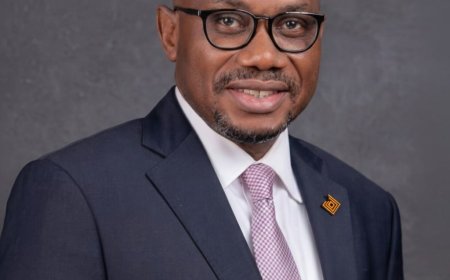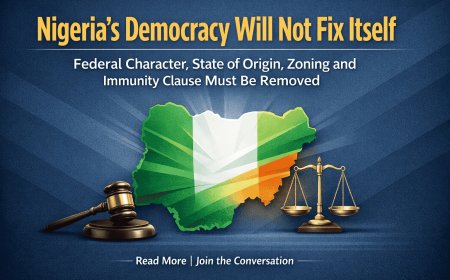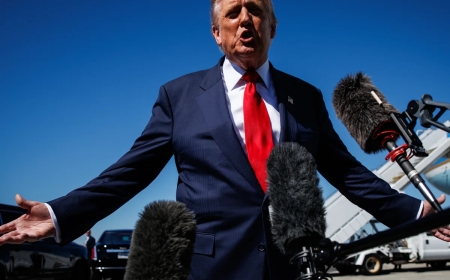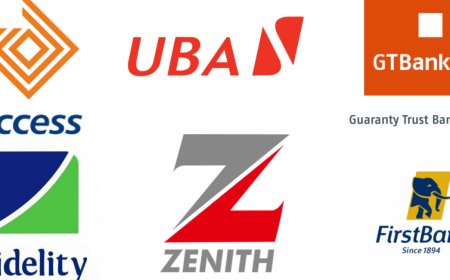How the World's Richest People Got Educated and What You Can Learn
Discover how the world’s wealthiest individuals gained their education—formally or informally—and uncover the key principles, habits, and strategies you can adopt to build wealth and purpose-driven success.
How Billionaires Got Educated — Lessons You Can Apply Today
If school is the key to success, then why did some of the wealthiest individuals on the planet never finish their degrees? From Elon Musk and Jeff Bezos to Warren Buffett and MacKenzie Scott, the educational paths of the world's richest people are anything but conventional.
Some dropped out before their second semester, while others piled up degrees like trophies. But one thing is clear: their success wasn't defined by their academic credentials. In fact, the real story behind their rise might just surprise you.
Degrees vs. Execution: The Bigger Picture
Before we dive into the details, let's get one thing straight: this isn't a school vs. street debate. It's a much bigger conversation about how the world's most successful people approached education and learning.
While some of these billionaires bailed on school to chase big ideas, others never stopped learning, even if they didn't follow the traditional academic route. And a few managed to stack elite degrees like weapons, using their education as a springboard to build empires.
The common thread? Execution. Degrees can open doors, but it's what you do with that knowledge that truly matters. Let's meet the billionaires and uncover the lessons we can all apply to our own journeys.
#10 Michael Dell: From Dorm Room to Dell Empire
Michael Dell, the founder of Dell Technologies, had a plan: study pre-med at the University of Texas and become a doctor. But at just 19 years old, he had a different idea brewing in his dorm room.
Instead of focusing on his studies, Dell was busy building PCs from scratch and selling them for a profit. His dorm room hustle quickly became more lucrative than most professors' salaries, and in 1984, he dropped out of college to chase his entrepreneurial dreams.
Today, Dell Technologies is a $90 billion legacy, proving that sometimes the best education isn't found in a classroom – it's in your side hustle.
#9 Françoise Bettencourt Meyers: From Literature to L'Oréal
Françoise Bettencourt Meyers, the richest woman on Earth, didn't study business, economics, or marketing. Instead, she immersed herself in the world of Greek and Latin literature at the University of Paris.
Yet, under her leadership, the L'Oréal empire has grown into a global powerhouse, with a net worth of around $99 billion. The lesson? You don't need a traditional business degree to build a successful company. What matters is what you do when power lands in your hands.
#8 Sergey Brin: PhD Dropout, Built Google
Sergey Brin was deep into a PhD program at Stanford, working on complex math and computer science problems. But then, he teamed up with Larry Page, and their little research project turned into a global verb: Google.
Brin literally left his PhD to build the world's biggest search engine. Today, Google processes billions of searches per day, and Brin's net worth sits at a staggering $170 billion. The lesson? Sometimes, your thesis isn't meant for a professor – it's meant for the world.
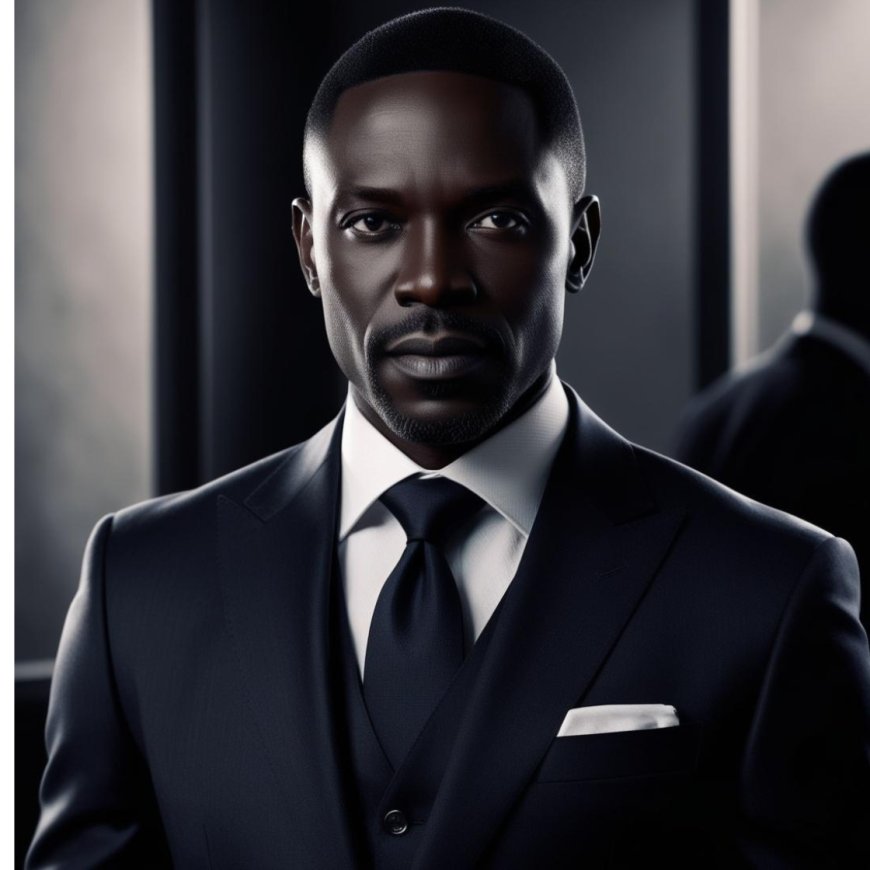
- The Need For Private Investigators To Review AMCON'S Operations Over The Last Decade
- How Non Payment Of Your Debt Affect Your Integrity
- Strengthening Fight Against Financial Fraud in Nigeria
- Understanding The Dangers of Financial Fraud And How To Stay Clean
- Strengthening Public Trust In Law Enforcement Agencies in Nigeria
#7 Larry Ellison: The Oracle of Dropouts
Larry Ellison, the co-founder of Oracle, didn't just drop out of one university – he dropped out of two. He tried pre-med, hated it, and switched schools, still unsatisfied with his academic path.
But Ellison didn't let his lack of a degree hold him back. Instead, he built a multi-billion dollar software empire from scratch, with a net worth of over $200 billion. The lesson? Dropping out isn't the flex – it's what you do after that separates the bold from the broke.
#6 Carlos Slim Helú: Engineering His Way to Billions
Carlos Slim Helú, the Mexican business magnate, didn't drop out of school. In fact, he studied civil engineering at the National Autonomous University of Mexico. But he didn't use that degree to build bridges – he used it to build a telecom empire across Latin America.
While most of us were still figuring out how to pass math, Slim was investing his pocket money and building businesses on the side. Today, he's worth over $100 billion, proving that a degree won't make you rich, but if you know how to apply it, it just might make you unstoppable.
#5 Mark Zuckerberg: Hoodie, Code, Empire
Mark Zuckerberg, the hoodie-wearing Harvard kid who built a $200 billion empire, studied psychology and computer science. But in his second year, he bounced, leaving Harvard behind to focus on his code.
That code became Facebook, and the rest is history – a few billion friends later, Zuckerberg's net worth sits at over $210 billion, and he runs one of the most powerful tech companies on Earth. The lesson? Sometimes, one good idea executed relentlessly is worth more than four years and a degree.
#4 MacKenzie Scott: The Power of Words
MacKenzie Scott, the ex-wife of Jeff Bezos, studied English literature at Princeton, not business, tech, or finance. But those words helped her edit Amazon's early business plan and shape the startup that would redefine how the world shops.
After their divorce, Scott walked away with a fortune and started giving it away faster than anyone in history – over $14 billion in donations, with a net worth around $60 billion. The lesson? Humanities degrees don't make you soft; in the right hands, they can shape the world.

#3 Elon Musk: Dropped a PhD for the Future
Elon Musk, the visionary behind Tesla, SpaceX, and Neuralink, has two degrees: physics and economics from the University of Pennsylvania. He even got accepted into a PhD program at Stanford, but he quit after just two days.
Why? Because he had businesses to build – from electric cars and rockets to brain-computer interfaces. Today, Musk's net worth is around $400 billion, the highest on this list. The lesson? A PhD might have earned him respect, but dropping out earned him the future.
#2 Jeff Bezos: From Wall Street to World Domination
Jeff Bezos, the founder of Amazon, isn't a dropout. He went full nerd mode at Princeton, majoring in electrical engineering and computer science. After graduating, he landed a cushy Wall Street job and crushed it.
But in 1994, Bezos quit his finance gig and started selling books online in his garage. That site, Amazon, now sells everything, owns everything, and is worth more than most countries. Bezos himself is worth over $230 billion. The lesson? Sometimes, the degree matters, but it's the guts to walk away from comfort that changes everything.
#1 Warren Buffett: The Billionaire Formula
Warren Buffett, the legendary investor and the world's 5th richest person, didn't drop out, pivot, or code in a dorm room. Instead, he studied business at the University of Nebraska and then got his master's in economics at Columbia, learning directly from investing legend Benjamin Graham.
Buffett didn't build rockets or social networks – he built wealth, one smart investment at a time. Today, he's worth $146 billion, proving that degrees matter, mentorship matters, and above all, patience, discipline, and long-term thinking are the real billionaire formula.
Final Takeaway: What We Can Learn
From these 10 billionaires, we've learned that there's no one-size-fits-all formula for success. Some had elite degrees, others walked out of class and never looked back, but one thing was always true: their degrees weren't the defining factor – their drive was.
They stayed curious, took risks, built relentlessly, and never waited for permission. Whether you're in school or not, your success starts with what you decide to do next. So, which of these billionaires surprised you the most? And what lesson will you apply to your own journey?

Key Takeaways:
- Education isn't the guaranteed path to wealth – it's what you do with that knowledge that truly matters.
- Degrees can open doors, but execution kicks them down. Some of the world's richest people never finished school, while others piled up degrees like trophies.
- A side hustle in your dorm room might be worth more than a professor's salary (just ask Michael Dell).
- You don't need a business degree to build a successful company – just look at Françoise Bettencourt Meyers and her literature degree.
- Sometimes, your thesis isn't meant for a professor – it's meant for the world (like Sergey Brin and Google).
- Dropping out isn't the flex – it's what you do after that separates the bold from the broke (just ask Larry Ellison).
- A degree won't make you rich, but if you know how to apply it, it just might make you unstoppable (like Carlos Slim Helú and his civil engineering degree).
- One good idea executed relentlessly is worth more than four years and a degree (as Mark Zuckerberg proved with Facebook).
- Humanities degrees don't make you soft – in the right hands, they can shape the world (just look at MacKenzie Scott and her English literature degree).
- A PhD might have earned respect, but dropping out earned the future (as Elon Musk demonstrated).
- Sometimes, the degree matters, but it's the guts to walk away from comfort that changes everything (like Jeff Bezos and his Princeton degree).
- Degrees matter, mentorship matters, and above all, patience, discipline, and long-term thinking are the real billionaire formula (as Warren Buffett has shown).
So, what's your next move? Will you chase a degree, or will you blaze your own trail? The choice is yours, but remember – success isn't about the path you take, it's about the drive that fuels your journey.
Edited by Dr Kreeno
Kindly share this story:
Contact: report@probitasreport.com
Stay informed and ahead of the curve! Follow The ProbitasReport Online News Report on WhatsApp for real-time updates, breaking news, and exclusive content especially when it comes to integrity in business and financial fraud reporting. Don't miss any headline – and follow ProbitasReport on social media platforms @probitasreport
[©2025 ProbitasReport - All Rights Reserved. Reproduction or redistribution requires explicit permission.]
What's Your Reaction?











